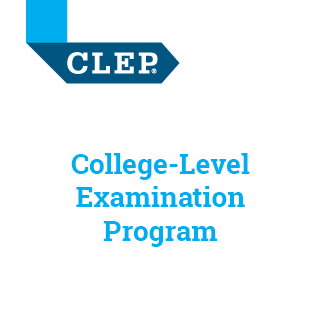Get Ready for College Admission Exams with Confidence
Whether you're preparing for the SAT, ACT, or any other college admission exam, we provide the resources to help you take the next big step towards your college future.
College Admission Exams

College admission exams are standardized tests that play a crucial role in determining a student’s eligibility for admission into higher education institutions across the United States. These tests are designed to evaluate academic preparedness, critical thinking skills, and, in some cases, subject-specific knowledge. While not all colleges require standardized test scores, many competitive institutions still rely on them as part of the holistic admissions process.
These exams serve as a common benchmark for comparing students from different educational backgrounds. They provide colleges with a measurable way to assess readiness for college-level coursework and to award merit-based scholarships. Over time, college admission tests have evolved to include a range of options to meet the diverse needs of students and institutions alike.
Types of College Admission Exams
The landscape of college entrance exams includes several well-known and widely used assessments, each serving different purposes and often targeting different stages or types of higher education. Below are the main categories of college admission exams:
1. General College Entrance Exams
These are the most commonly recognized standardized tests used for undergraduate college admissions in the United States.

(SAT)
Administered by the College Board, the SAT is a multiple-choice, pencil-and-paper test that assesses students’ skills in reading, writing and language, and math. The SAT is widely accepted by colleges and universities and often required as part of an undergraduate application. It is typically taken by high school juniors and seniors.

(ACT)
The ACT is another widely accepted college admissions test that measures students’ skills in English, math, reading, and science reasoning, with an optional writing section. Some colleges prefer the ACT over the SAT, though most institutions accept scores from either test.
2. Placement and Dual Enrollment Exams
These exams help determine a student’s placement in college-level courses or eligibility for dual enrollment programs.

Offered by the College Board, the ACCUPLACER is a suite of tests used to evaluate a student’s readiness for college-level coursework. It is often used by community colleges and technical institutions to place students in appropriate math and English classes.

(TSIA1)
This is a Texas-specific ACCUPLACER exam that assesses whether students are ready for college-level coursework in reading, writing, and math. It is used by public colleges and universities in Texas to determine placement and course requirements.

(PERT)
Primarily used in Florida, the PERT is a placement exam that helps determine whether students are ready for college-level courses. It is often taken by high school students entering dual enrollment programs.
3. College-Level Examination Programs (CLEP and DSST)
These exams allow students to earn college credit by demonstrating mastery of college-level material.

College-Level Examination Program
(cLEP)
Developed by the College Board, CLEP exams allow students to test out of introductory college courses by demonstrating their knowledge in subjects such as history, business, science, and literature. This can save time and money by reducing the number of courses a student must take.

(DSST)
Originally developed for military personnel, DSST exams are now available to all students. Like CLEP, they allow students to earn college credit in a wide range of subjects, including technical and business disciplines.
4. Special Program and Honors College Admissions Exams
Some universities and honors programs require additional testing for entry into highly selective or specialized academic tracks. While these are not standardized nationwide, they may include subject-specific assessments, interviews, or internal admission exams conducted by the institution.
5. Advanced Placement and International Exams
Though not traditional college admission exams, these tests can influence admissions decisions and earn students college credit.

(AP)
Administered by the College Board, AP exams are taken after completing AP high school courses. High scores can strengthen college applications and allow students to skip introductory college classes.

(IB)
Students in IB Diploma Programs take IB exams, which are recognized by many U.S. colleges. They demonstrate a high level of academic achievement and are often considered in the admissions process.

International students may present A-Level or Cambridge exam results when applying to U.S. colleges. These exams are widely accepted and often considered comparable to AP or IB exams.
Choosing the Right Exam
Selecting the right exam depends on the student’s academic goals, the colleges they are applying to, and their strengths in particular subject areas. For example, a student aiming to attend a competitive private university may benefit from taking both the SAT or ACT and several AP exams. Meanwhile, a student planning to attend a community college may focus on placement exams like the ACCUPLACER or TSIA2.
It is also important to research each college’s testing policy. Some schools have adopted test-optional or test-blind policies, meaning they may not require or even consider test scores during the admissions process. However, students applying for merit-based scholarships or certain programs may still need to submit standardized test scores.
The Role of Standardized Tests in College Admissions
While the emphasis on standardized testing has shifted in recent years, college admission exams continue to hold significant value. They offer a standardized measure of academic achievement and potential, especially in contexts where high school GPA and coursework may vary greatly between schools and districts.
For students who perform well, these exams can provide an opportunity to stand out in the college admissions process, qualify for scholarships, and even earn college credit before setting foot on campus.
Get Started with US Exam Prep

College admission exams continue to shape the educational journey of millions of students each year. Whether preparing for a traditional route to a four-year university or exploring alternative pathways to higher education, understanding the available exams and how they fit into the college admissions process is key. At US Exam Prep, we provide trusted guidance, resources, and practice materials across all major college admission exams to help students pursue their academic goals with confidence.
